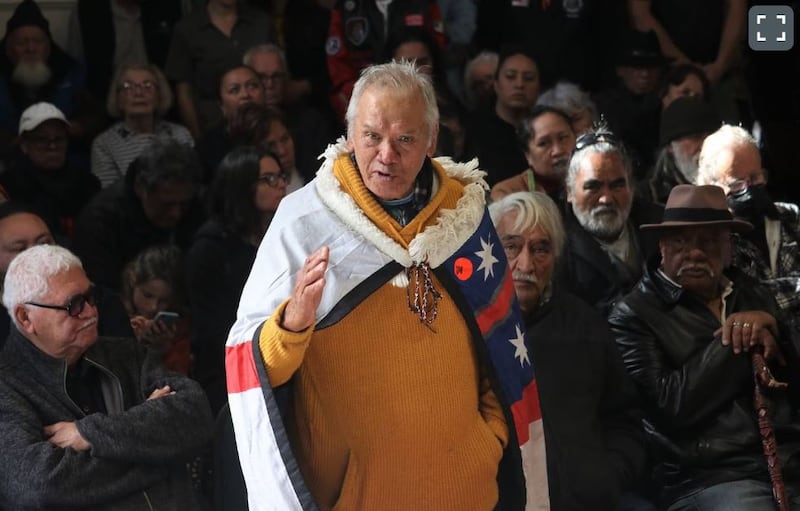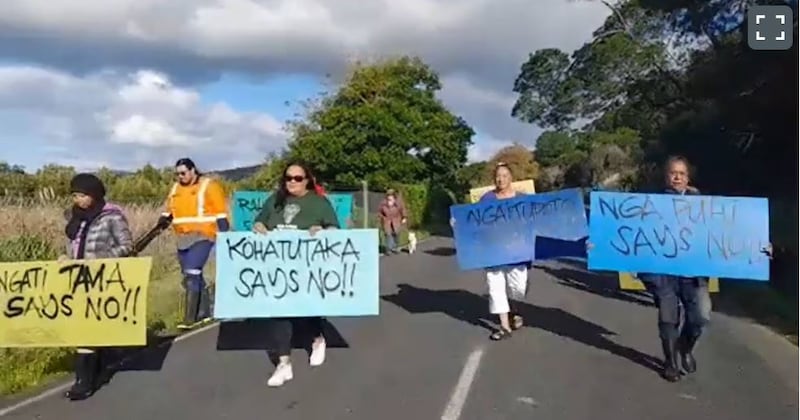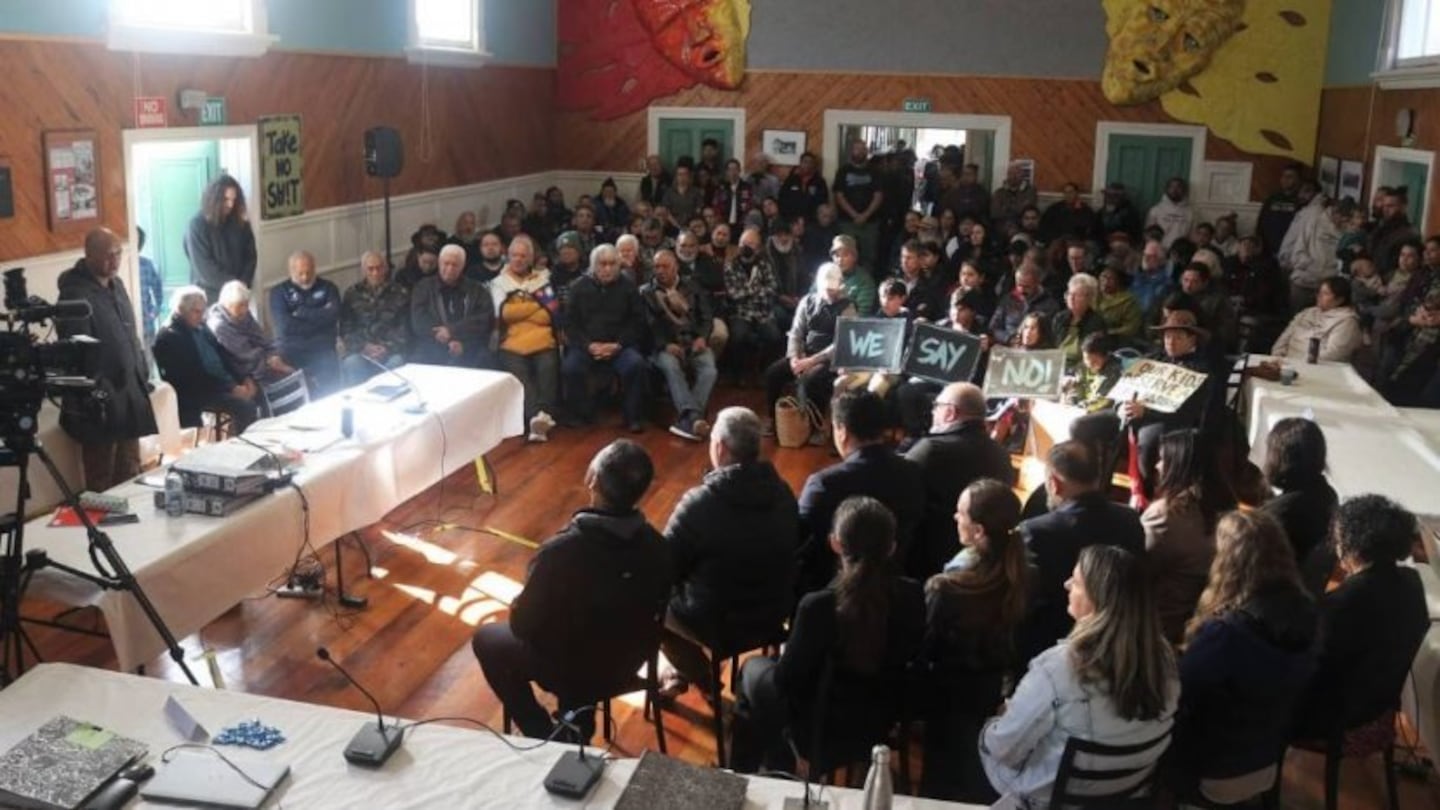Locals took over the hearing venue at Rawene Town Hall to show their opposition to the granting of resource consents for the Ōpononi-Ōmāpere and Kohukohu wastewater treatment plants. Photo / Peter de Graaf
By Peter de Graaf, Northern Advocate
Hokianga residents fighting council plans to continue discharging treated wastewater into their harbour will have to wait a little longer to find out if they’ve persuaded commissioners tasked with granting — or not — resource consents for two controversial sewage plants.
The Far North District Council is applying to the Northland Regional Council for an extension to its treatment plant consents at Ōpononi and Kohukohu.
The consent for the Ōpononi plant, which also serves neighbouring Ōmāpere, expired in 2019 and Kohukohu’s in 2016.
The evidence is being heard by independent commissioners.
The five-day resource consent hearing was to have ended on May 19 but the sheer number of experts and locals who wanted to speak meant proceedings ran over time.
Opponents say the ageing plants fail in heavy rain or high temperatures, causing untreated sewage to be discharged into the iconic harbour.
Locals put on a strong show of their concerns by taking over the first morning of the hearings at Rāwene Town Hall and attending in large numbers.
Jessie McVeagh, a founding member of Te Mauri o Te Wai, a hapū-led community liaison group for Rāwene’s wastewater scheme, said the public response made her “so proud” of Hokianga.
“I was so happy, so pleased, with the way we came together for this issue across any perceived kind of differences. People turned up and kept turning up. It showed, as we already know, how important the harbour is to everybody here.”
After hearing five days of submissions, McVeagh said the commissioners indicated they weren’t prepared to simply renew the consents with the proposed minor upgrades.
“They wanted both councils to consider what had been said over the week. They said the district council shouldn’t slow down the maintenance needed to get the plants, Ōpononi in particular, up to compliance. They also tasked the public to think about what they collectively wanted to see, not just what they didn’t want.”
McVeagh said Te Mauri o Te Wai wanted a short consent and a working group of council, hapū and community members to come up with an acceptable solution.
That was the only way the council could avoid picking a fight with the community for another 40 years, she said.

Hokianga kaumatua Wiremu Peita addresses the commissioners on the first day of the hearings. Photo / Peter de Graaf
Dallas King, a spokeswoman for Ngā Hapū o Hokianga and Te Mauri o Te Wai, said the commissioners would consider the submissions so far and return in early July for a final hearing day. The date had yet to be confirmed.
The final day would include responses from regional and district council staff.
King said the commissioners had allowed the extra time so speakers in the first five days didn’t have to be restricted, which was appreciated.
“In the meantime the applicant (Far North District Council) was reminded there is no reason for them to wait for the hearing process to remedy existing issues with the wastewater treatment plants so that at the very least the current systems are compliant in the interim,” she said.
A timeline for the commissioners’ decision won’t be known until after the hearings are complete.

A protest outside Kohukohu’s wastewater plant was timed to coincide with the commissioners’ site visit. Photo / Tautoko FM
One of the key demands from Hokianga residents is that treated wastewater be discharged on to land instead of into the harbour.
In its application to continue the existing plants, however, the district council said Hokianga’s poorly draining soils and steep terrain would make that expensive and also likely to fail in heavy rain.


